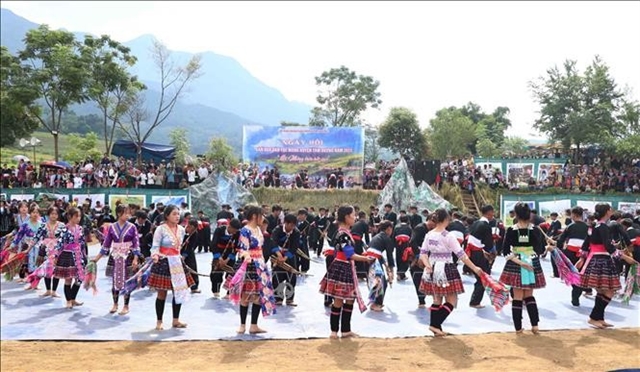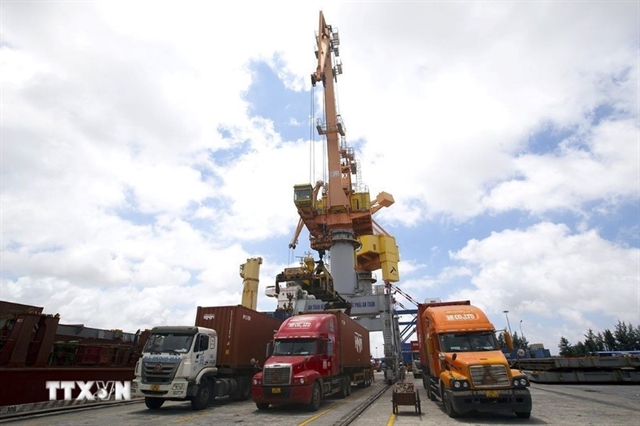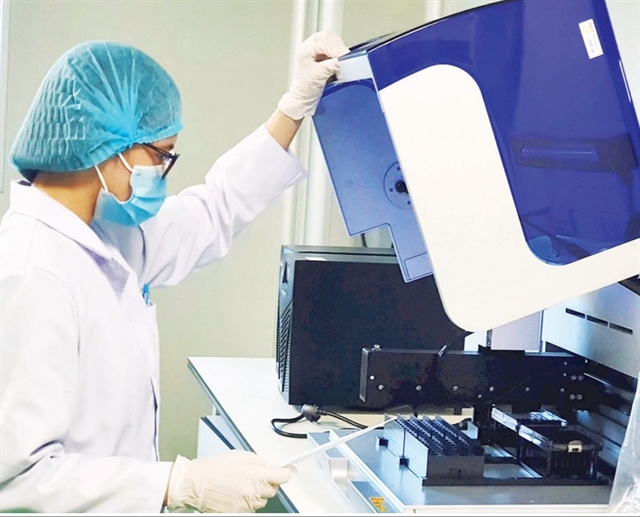 Society
Society
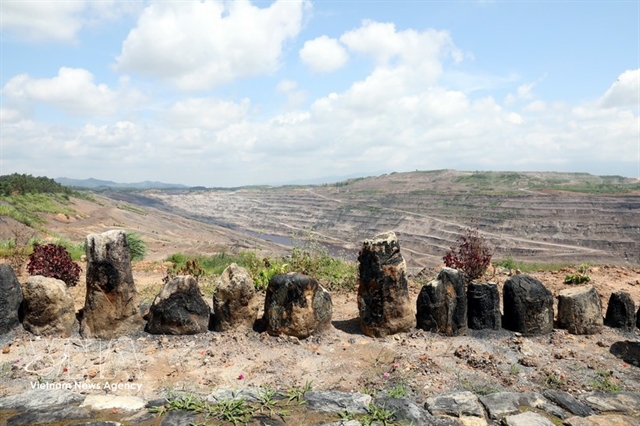
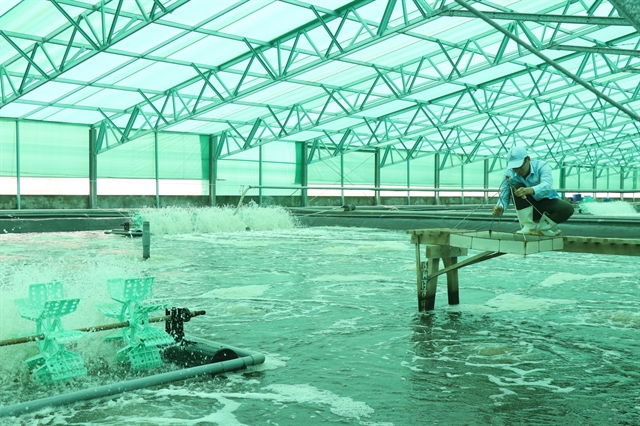
|
| A high-tech super-intensive shrimp pond in Bạc Liêu Province. It is equipped with modern facilities such as oxygenation equipment to increase production efficiency. — VNA/VNS Photo Chanh Đa |
BẠC LIÊU — Bạc Liêu Province has developed agricultural production towards adapting to climate change and advanced farming techniques to improve production efficiency.
The Cửu Long (Mekong) Delta province has fresh, brackish and salt water areas and diversified natural conditions of geography, weather and soil, along with advantages for developing agriculture, especially organic agriculture.
Agricultural production is the province’s strength.
However, it is one of the delta’s provinces which have been hardest hit by climate change, especially saltwater intrusion and rising sea levels.
The impact of climate change, such as saltwater intrusion and drought, has affected agricultural production, causing poor harvests and disease outbreaks.
To mitigate the impact, the provincial Department of Agriculture and Rural Development has implemented various measures to assist farmers to cultivate crops and animals which suit with natural conditions of each locality.
It has researched and created new crop varieties which have high quality and adapt to natural challenges in each locality, such as saltwater intrusion, drought and flooding, and transferred them to farmers for cultivating.
It has develop advanced farming models such as Vietnamese good agricultural practices (VIetGAP), integrated pest management and methods such as “three increases-three reductions”, and “one must-five reductions”.
Under the “one must-five reductions” method, farmers must use certified seeds, and reduce seedlings, nitrogenous fertiliser, plant-protection chemicals, and irrigation and post-harvest losses.
Farmers are instructed on the method of direct seedling in growing rice instead of using the transplanting method.
Farmer Ngô Thanh Tú in Hồng Dân District’s Ninh Thạnh Lợi Commune said: “I see this direct seedling method saves time on sowing, and labour and production costs.”
Using the direct seedling method, farmers enjoy many conveniences and can proactively manage water resources, fertilising, tending and harvesting, he said.
Farmers in the province’s coastal areas are implementing a shrimp-rice farming model in which they grow rice in the rainy season and breed shrimp in the dry season in the same field.
Local authorities have encouraged farmers to expand the model as it adapts to climate change and is environmental friendly because farmers use few chemicals in growing rice and breeding shrimp.
The province’s shrimp-rice farming has increased from 22,134ha in 2010 to 43,000ha last year.
Besides shrimp-rice farming, Bạc Liêu is a leading province in developing high-tech shrimp breeding under an intensive farming method.
It has 25 companies and 830 households applying high-tech shrimp breeding on a total of 4,607ha, accounting for 3.26 per cent of the province’s total shrimp areas.
It has developed five high-tech aquaculture areas with a total of 3,900ha in Bạc Liêu City, Hòa Bình and Đông Hải districts.
It has applied high-tech and organic farming methods for 8,386ha of rice, 71ha of vegetables and 15ha of fruits.
More rice farmers in the province have rotated growing rice and other crops in the same field or switched completely to growing other high value crops to adapt to climate change.
In Phước Long District’s Vĩnh Phú Đông Commune, farmers used to grow two rice crops a year. Under the encouragement of local authorities, they have switched to grow other crops such as corn, water melon and sponge gourd, and earn higher profits than growing rice.
Phan Văn Thông in Vĩnh Phú Đông Commune’s Mỹ 1 Hamlet said the profit of growing corn is three to four times that of growing rice.
He earns a profit of nearly VNĐ70 million (US$2,900) from growing three corn crops a year on his 4,000sq.m field, he said.
Trương Thanh Tuyền, director of the Quyết Tiến Cooperative in Mỹ 1 Hamlet, said the cooperative has assisted its 173 members to grow suitable crops, and they have good income.
The cooperative sells seeds and materials on credit to the members and collects payment after they sell their harvest, he said.
It has linked with traders in wholesale markets to secure stable outlet for the members, he said.
The members earn a profit of VNĐ150 million ($6,200) per hectare a year from growing corn and other crops, he said.
The cooperative’s glutinous corn has been recognised as a three-star product under the country’s “One Commune – One Product” programme.
To effectively restructure crop cultivation, the department has instructed localities to strengthen advocacy activities about restructuring and develop linkages among stakeholders in producing and selling agricultural produce to secure stable prices and outlet for farmers.
Lưu Hoàng Ly, director of the department, said production of agricultural produce that meets food safety and adapts to climate change is a necessary demand.
“To develop farming models sustainably, construction and non-construction projects coping with climate change have to be implemented effectively, especially for zoning and selecting crops which are suitable with each locality's conditions, and there should be long-term orientation to secure stable outlets,” he said. — VNS
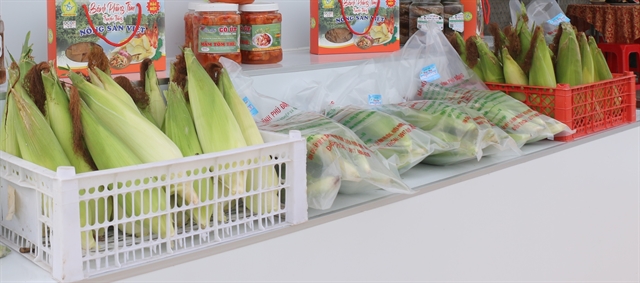
|
| Glutinous corn of the Quyết Tiến Cooperative in Bạc Liêu Province’s Phước Long District is recognised as a three-star product under the country’s “One Commune – One Product” programme. — VNA/VNS Photo Tuấn Kiệt |

